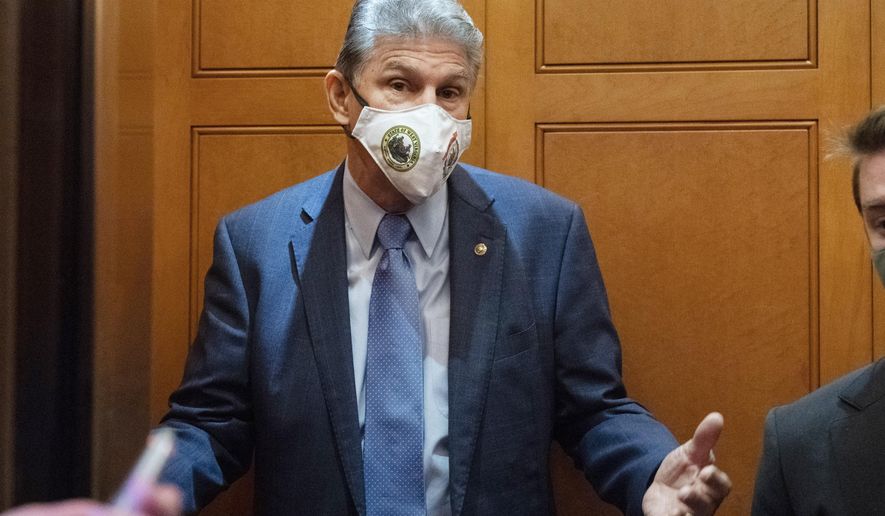The Congressional Budget Office warned on Friday that President Biden’s mammoth social welfare and climate change bill would add $3 trillion to the federal deficit if all of its programs are made permanent.
The CBO, a nonpartisan agency tasked with analyzing the fiscal impact of federal legislation, released an in-depth analysis of Mr. Biden’s Build Back Better Act. It found that, despite the roughly $1.75 price tag attached to the bill, if all of the proposed programs continue over the next 10 years, the federal deficit would balloon by $3 trillion.
The sum is roughly equal to the $2.8 trillion deficit the country has run up over the past year as Washington has boosted spending to deal with lingering effects of the coronavirus pandemic. So far, all of that new spending has helped push the national debt to $28.9 trillion.
Mr. Biden has long claimed that the bill will cost “zero” and be paid for through tax increases on the wealthy and corporations.
“The Congressional Budget Office and the staff of the Joint Committee on Taxation project that a version of the bill … would increase the deficit by $3.0 trillion over the 2022-2031 period,” said CBO director Phillip Swagel.
Congressional Democrats have downplayed the cost of the package by limiting the life span of some of the more expensive programs.
The White House, for instance, has proposed to extend an expansion of the Child Tax Credit, which gives $300 a month to families with children under the age of 6, for a year. It has similarly proposed a one-year extension of the Earned Income Tax Credit.
For larger spending programs, such as universal pre-kindergarten and child-care subsidies, Mr. Biden has proposed a six-year life span.
Republican lawmakers argue that such tactics are budgetary gimmicks. “This analysis from the nonpartisan Congressional Budget Office confirms that Washington Democrats are misleading the public about the true cost and impact of their tax and spending agenda,” said Rep. Jason Smith of Missouri, the top Republican on the House Budget Committee.
Even some Democrats admit the short-term funding tactic is disingenuous and only serves to obfuscate the real cost of the bill.
“One goes for three years, one goes for one year, and maybe one other one might go for the full 10 years,” said Sen. Joe Manchin III, West Virginia Democrat. “Do they not intend for those programs to last the full time, 10 years? Well, if you intend for that to happen, what’s the real cost?”
Mr. Biden and Democrats say the shorter funding measures are a risk worth taking. Both advocates and detractors say that once new entitlement programs are in place, they will prove difficult, if not impossible, to jettison.
“CBO has provided a true cost of the bill over 10 years — assuming the programs never go away — which they will not,” said Sen. Lindsey Graham, South Carolina Republican. “Their analysis is stunning. … We all know that the new provisions will not sunset – they never do.”
Democratic leaders pushed back on such concerns by pledging that any future extension of the package’s programs would be fully funded.
“Congress and President Biden have made clear: any future extensions of the life-changing provisions of Build Back Better will be fully paid for, as they are today,” said House Speaker Nancy Pelosi, California Democrat. “Until then, Democrats are forging ahead with the Build Back Better Act to create jobs, lower everyday costs and cut middle-class taxes.”
• Haris Alic can be reached at halic@washingtontimes.com.




Please read our comment policy before commenting.